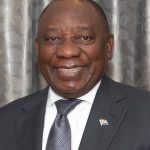Politics
South Africa Politics
This page explores South Africa’s political structure incorporating real-time RSS feed news and videos. By harnessing the power of RSS feeds, visitors can stay informed about the latest developments in South Africa’s politics as they happen. The dynamic nature of these feeds ensures that users receive up-to-the-minute updates on political events, policy changes, and significant milestones, enabling them to stay abreast of the ever-evolving political scene.

Cyril Ramaphosa
5th President of South Africa
Incumbent
Assumed office
15 February 2018
Acting: 14 February 2018 – 15 February 2018
Image credit
South Africa, located at the southernmost tip of Africa, has a complex political history shaped by apartheid and the struggle for freedom and equality. Today, it operates as a constitutional democracy with a multi-party system.
South Africa’s political landscape is dominated by the African National Congress (ANC), which played a leading role in the fight against apartheid and has been the ruling party since the country’s first democratic elections in 1994. The ANC’s policies are largely rooted in social democracy, aiming to address historical inequalities and promote social welfare.
The Parliament of South Africa consists of two houses: the National Assembly and the National Council of Provinces. Members of the National Assembly are elected through a proportional representation system, while members of the National Council of Provinces are chosen by provincial legislatures. The President of South Africa serves as the head of state and head of government, elected by the National Assembly. South Africa’s political landscape is diverse, with several political parties representing different interests and ideologies. The main opposition party is the Democratic Alliance (DA), which advocates for liberal economic policies and emphasizes non-racialism. Other significant parties include the Economic Freedom Fighters (EFF), which promotes radical economic transformation and social justice, and smaller parties representing specific interests and constituencies.
South Africa faces numerous challenges, including persistent economic inequality, high unemployment rates, corruption, and crime. The legacy of apartheid and the need for social transformation remain central to the country’s political agenda. Efforts to promote inclusive economic growth, access to education and healthcare, land reform, and social cohesion continue to shape the political discourse. Additionally, South Africa plays an influential role in regional and international affairs, participating actively in organizations such as the African Union (AU) and the United Nations (UN). The country is often involved in peacekeeping missions and plays a key role in promoting regional stability and development in Africa.
South Africa’s political system has been lauded for its commitment to democracy and human rights. However, addressing socioeconomic disparities and deep-rooted challenges remains an ongoing process. The ability to effectively tackle these issues, promote inclusive governance, and foster economic prosperity will be critical in shaping South Africa’s future and realizing the vision of a united, democratic, and prosperous nation.
Unless other sources are listed, original content is provided by ChatGPT. ChatGPT may produce inaccurate information about people, places, or facts. #SouthAfrica #SouthAfricaPolitics #SouthAfricaNews #SouthAfricaNewsToday #SouthAfricaRSSFeed #BlahFace



